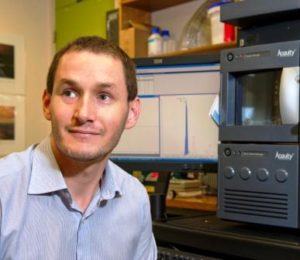
When two patients are given the exact same dose of medication, their reaction to the drug – including how well it works and what side-effects it has – largely depends on the person.
Now, scientists from Flinders University and teaming up with clinicians from Flinders Medical Centre in an attempt to make a class of cancer drugs more effective by allowing patients to receive the dose that is best for them.
Funded by a $75,000 grant from biomedical research charity the Ramaciotti Foundation, the team will use a computer modelling technique to measure the amount of drugs in a person’s blood, then tailor the dose depending on individual needs.
The two-year study will investigate a class of new and rapidly expanding anticancer drugs called tyrosine kinase inhibitors (TKIs), which are used to treat cancers that are unresponsive to chemotherapy such as renal, liver and some lung cancers.
As the individual response varies considerably – from having little uptake to severe side-effects – these drugs are best given at a specific dose to have an optimum effect, unlike other cancer drugs which are prescribed at a fixed dose because they produce relatively similar results.
Chief Investigator Dr Andrew Rowland, a lecturer from the University’s Discipline of Clinical Pharmacology and the Flinders Centre for Innovation in Cancer, said most TKIs were prescribed at a fixed dose.
“At the moment everyone gets the same dose but because every reaction is different, some people take longer to expel the drug which means they get more side-effects than someone who metabolises the drug too quickly, in which case the drug might not work at all,” Dr Rowland said.
“TKIs came on the market in 2001 and 11 are currently used in Australia, with twice that many in clinical development, but they haven’t been studied extensively, despite the variances in the effects they produce.”
Using a computer modelling technique called physiologically-based pharmacokinetic modelling, the study will take data from a small patient sample to predict the absorption and excretion of different TKIs doses in a larger population.
“TKIs are not widely used at the moment so getting enough patients for drug optimisation research is quite difficult,” Dr Rowland said.
“It would be unethical to change the dosage of these drugs in real cancer patients without knowing what will happen but the computer simulation will allow us to determine the effect of dose adjustments on a larger population, based on data from real people, without compromising their care.”
He said the research could eventually be applied to other drugs to improve delivery and efficiency.
“All anticancer drugs have bad effects in the body so if we can tailor doses we will minimise toxicity and generally improve patient outcomes.
“This project is also a great example of the new Flinders Centre for Innovation in Cancer bringing together pharmacologists from the University and clinicians from the hospital to address an age-old problem.”


One thought on “Just the right dose”
Comments are closed.